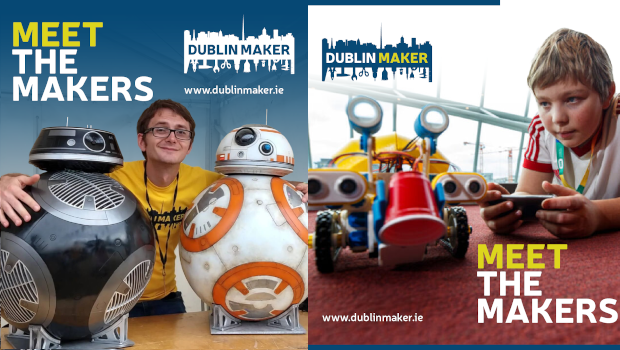
Making a real effort
Recent news that BMW is planning to offer heated seats as a service is just the latest reminder that just because you can do something doesn’t mean that you should. The liberatory promise of information and communications technology was that it would put the user at the centre of things. Today, it is increasingly the case that rather than setting us free, the technologies we use in daily life place us in chains, not least because as technology has penetrated our lives the ability to learn how it works at a fundamental level has receded.
The forward march of technology, it seems, is toward devices that are beyond our control and even our understanding. Slick user interfaces gloss over the fundamental problem of ownership and control.
There are islands of resistance, however. Of course, free and open source software (FOSS) is one of them, but there is also interest in tinkering with and even building hardware.
Last month, an estimated 10,000 visitors attended Dublin Maker, a festival celebrating creativity in an increasingly locked-down world of technology in which most people are guided towards passive consumption or, at best, social media creation.
Maker culture is the opposite, and from the serious to the downright silly, participants show a curiosity and pioneering spirit that is deserving of celebration.
Jeffrey Roe, one of the founders of Dublin Maker, believes such events tap into a yearning inbuilt into humanity.
“I think people have an innate desire to express themselves creatively. The maker movement provides a great conduit to let out people’s inner creativity. It is a new name for what our parents did in the past with cottage crafts but now with a much wider medium for people to work with. There is such a wide range of tools, technology, skills, and machines for people to use in the maker movement,” he wrote in an e-mail to TechCentral.ie.
Though not precisely the same, there is an overlap here with the so-called ‘right to repair’ movement, a campaign to force technology manufacturers to stop selling unrepairable devices or even ‘bricking’ ones that it detects have been repaired. More than that, though, reclaiming not only the right to repair, but the ability to learn by tearing things down and then building them back up is an important way of bringing wonder back into the world of tech.
Tinkering around with tech may not be everyone’s idea of a good time, but we should be grateful that some people still want to do it, and by doing so are ensuring that technology really does belong to all of us.







Subscribers 0
Fans 0
Followers 0
Followers